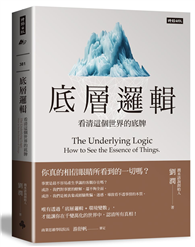The book is about multidisciplinary science education. The challenges of our time, such as improving the length and quality of lives on Earth and short- and long-distance communication and transportation. In this book, we provide readers with the multidisciplinary education necessary to meet the scientific and technological challenges of our time while optimizing the college experience for students.
The fundamental notions addressed in this book include gravitational forces and energy; dark matter and dark energy; heat transfer in solid Earth, stars’ interiors, and human bodies; electromagnetic radiation and spectroscopy; quantum entanglement and computing; accretion disks; matter in plasma state; and exoplanets. We illustrate the importance of these notions with applications across disciplines, including monitoring the deformation of the solid Earth’s surface using satellite measurements, unusual gravity anomalies in Antarctica, a view and characterization of the far side of our Moon, Earth’s climate, Titan’s anti-greenhouse effect, long-distance communication between Earth and the planets and exoplanets, etc. Finally, the book contains analytical and computational problems, including MATLAB software developed especially for the classes associated with this book.
Key Features:
- Contains multiple analytic and computational (MATLAB) exercises
- Explores applications related to space programs’ discoveries
- Provides an accessible introduction and response to growing Multidisciplinary Science programs
Dr. Luc Thomas Ikelle is a scientist with Imode Energy. He is also currently an adjunct professor in the Department of Geology and Geophysics at Texas A&M University. Previously, he worked at Cray Research Inc. in Minneapolis, developing 3D seismic inversion algorithms for CRAY Y-PM. From 1988 to 1997, he worked as a scientist for Schlumberger Geco-Prakla, Schlumberger Doll Research, and Schlumberger Cambridge Research. From 1997 to 2014, Dr. Ikelle was Robert R. Berg Professor in the Department of Geology and Geophysics at Texas A&M University. He earned a Ph.D. in geophysics and geochemistry from Paris 7 University in France. He received Le Prix de Thesis du CNRS in 1986 for his Ph.D. thesis, an SEG award in 2010 for his contribution to the creation of Geoscientists Without Borders, and a Texas AM University award as an outstanding scientist in 2012. He is a cofounder of Geoscientists Without Borders and of Imode Energy Research, and a member of SEG, AGU, and APS. Dr. Ikelle has worked as a DOE (US Department of Energy) special employer from 2005 to 2012 and was a member of Ultra-Deepwater Advisory Committee (an advisory committee to the Secretary of Energy) from 2005 to 2012.

 看圖書介紹
看圖書介紹










